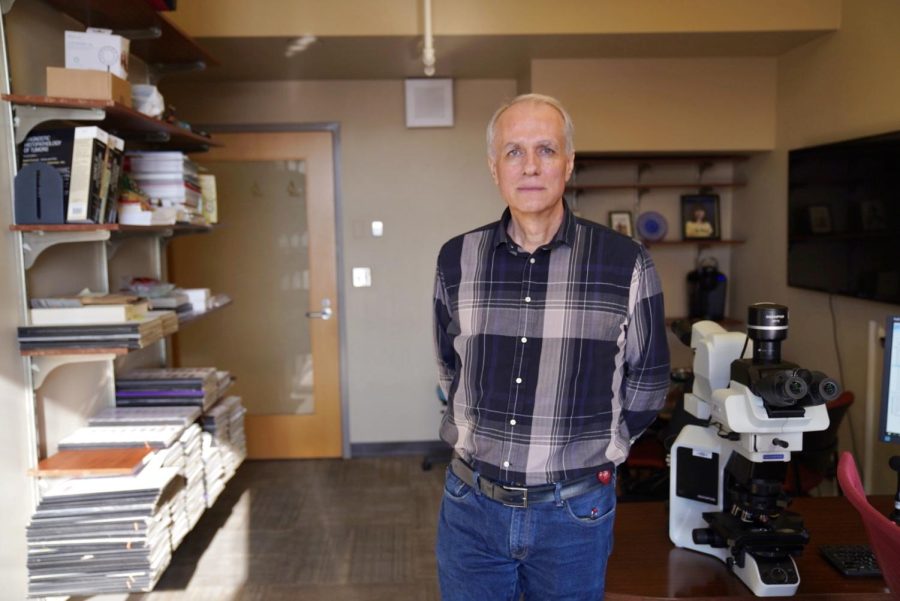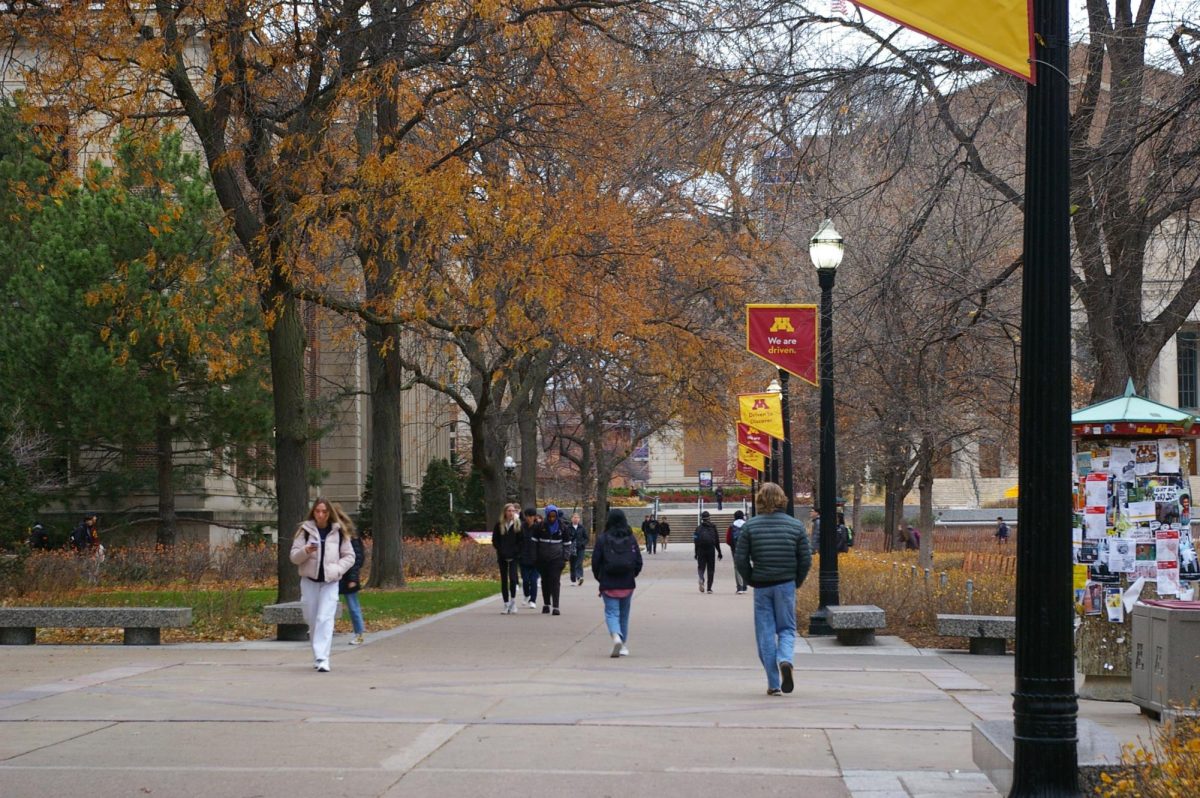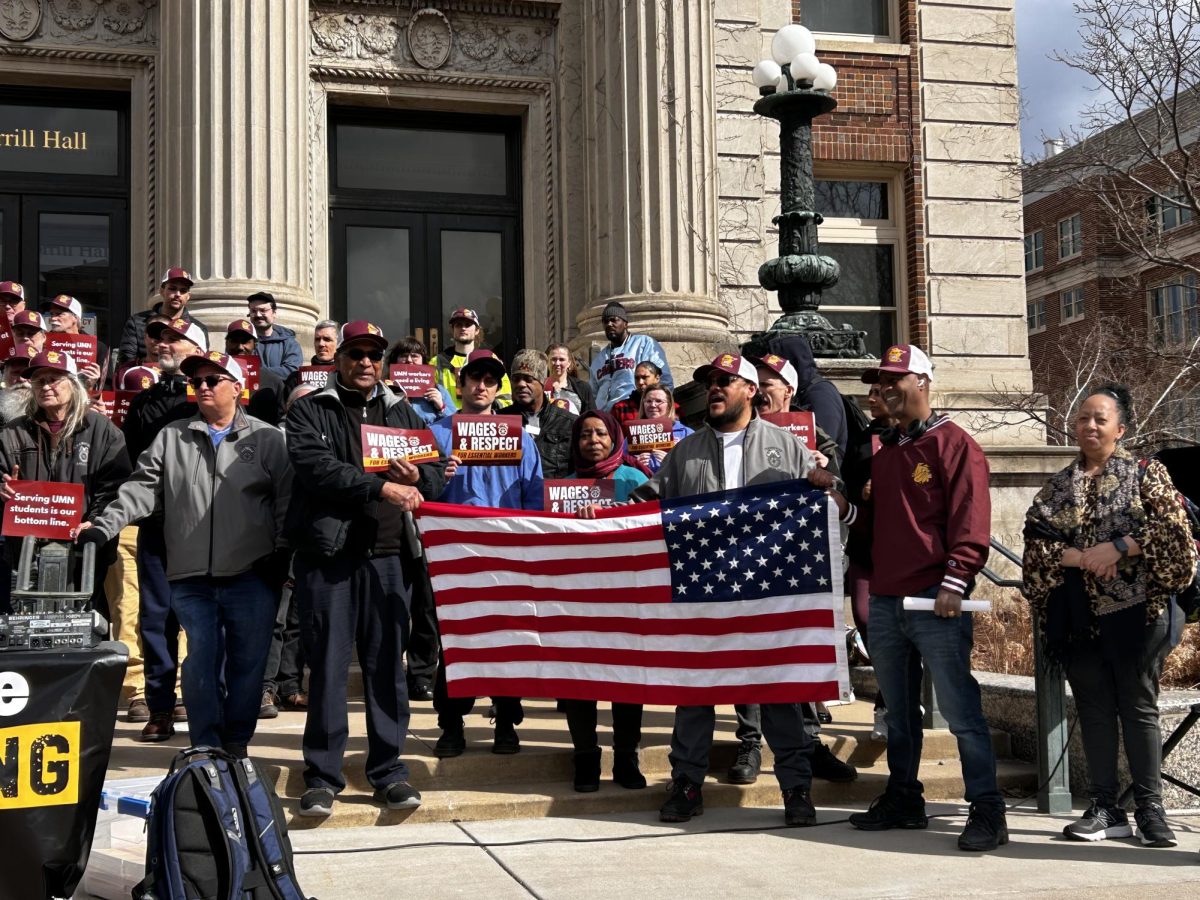Student, staff and faculty activists have called for an increase in COVID-19 safety protocols for the spring semester.
Some of their demands included requiring courses to be taught online for the first two weeks, providing adequate personal protective equipment (PPE) to students and expanding COVID-19 testing services offered through the University of Minnesota.
In a press release sent out on Jan. 11, a coalition titled UMN Students, Staff and Faculty United for Health and Safety called for the University to do more to address the Omicron “viral blizzard.”
In light of news about the potential spike in Omicron cases and COVID-19 policy updates sent out by President Joan Gabel and Provost Rachel Croson in early January, this coalition pushed for stronger COVID-19 safety protocols.
“We’re just trying to advocate for health and safety during the pandemic,” said Sumanth Gopinath, associate professor of music theory and coalition member. “We’ve been consulting a lot with faculty in the School of Public Health, doctors and others who have expertise to inform what we’ve been saying.”
The four demands in the press release were to require remote instruction for the first two weeks of this semester, to form a plan for a return to in-person instruction developed by faculty in the School of Public Health, to require high-quality masks and make them accessible to the University community and to expand testing services on campus.
The same demand for high-quality PPE was reflected in a petition titled “UMN Must Provide Adequate PPE for Students” authored by second-year law student Carli Cortina.
“We are expected to return to in-person classes with only a “face covering” requirement,” Cortina wrote in the petition’s description. “Omicron is highly transmissible, and forcing us to go back in person without effective masks (KN95, N95) is knowingly exposing every student, professor, and university employee to a dangerous virus.”
According to Cortina, the University of Minnesota Law School’s affinity groups held the same concerns regarding the University’s COVID-19 safety protocol.
In an email sent to the Law School’s Dean Garry Jenkins, these affinity groups expressed disappointment in the law school’s commitment to maintaining in-person classes.
“The general consensus I feel from the University is that people don’t want to be online and I think that’s true,” Cortina said. “But when it comes to being online versus being safe, I think that we feel our needs are being ignored.”
Jenkins sent out an email responding to the law student’s concerns on Jan. 12. In the response, Jenkins noted University policies such as the vaccine requirement, booster shot recommendation and free KN95 masks being distributed across campus, but ultimately, reaffirmed the law school’s commitment to in-person classes.
“While I realize that a relatively large number of cases is likely to be unsettling over the next few weeks, we plan to move forward with the semester in person, in line with University guidance,” Jenkins wrote in the Jan. 12 email.
Cortina added that, although she and many law students agree that it was difficult to do remote learning, it is also hard to learn with the anxiety of catching COVID-19 during an in-person class.
“There’s just so much uncertainty,” Cortina said. “The whole point is to be in-person and make it feel normal. But it feels less normal because everyone’s [experiencing] heightened anxiety.”
While some professors and students are calling for an increase in COVID-19 safety protocol, other professors say they want to return in-person because it is difficult for both professors to teach and students to learn online.
“In my opinion, online teaching is not the proper way to teach,” Emilian Racila, assistant professor of pathology, said. “Pathology is very difficult to actually teach online or by doing pre-recorded lectures. Students, they don’t have an opportunity to communicate, to ask questions, to get explanations that they need.”
Similarly, medical students usually focus on direct-patient interaction as part of their University education, which is difficult to do in online classes, said Rahel Ghebre, University professor in the Department of Obstetrics, Gynecology and Women’s Health.
“It’s so important for our residents and fellows to have direct-patient interaction, so we can’t really deliver good learning without having them face the patient,” Ghebre said. “It’s a much more complex interaction [and] there’s not as many options to do it virtually.”
Some faculty say they hope to highlight how the University’s COVID-19 safety policies on the surrounding communities, as outbreaks on campus will increase the transmission rates across Minneapolis.
“I think the joy of being in the classroom and the nature of in-person pedagogy is, to me, undeniable — it feels much better,” Gopinath said. “But, we’re trying to do what we can, not only to protect the U community, but to ensure that the broader community in which we live isn’t affected by the fact that we’re spreading the disease here and then spreading it beyond.”




















CapnRusty
Jan 27, 2022 at 11:50 am
Frightened little children . . .
lostoncampus
Jan 27, 2022 at 10:20 am
Sorry, When it comes to Health and Safety issues, the LAST place Im going to look for advice is a Music theory”Assoc Prof”